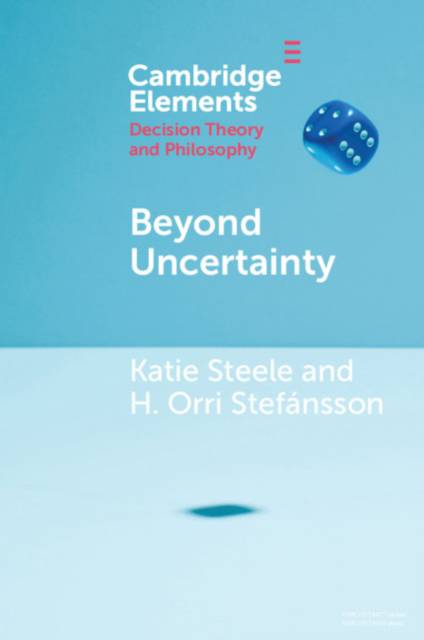
- Afhalen na 1 uur in een winkel met voorraad
- Gratis thuislevering in België vanaf € 30
- Ruim aanbod met 7 miljoen producten
- Afhalen na 1 uur in een winkel met voorraad
- Gratis thuislevering in België vanaf € 30
- Ruim aanbod met 7 miljoen producten
Zoeken
€ 31,95
+ 63 punten
Omschrijving
The main aim of this Element is to introduce the topic of limited awareness, and changes in awareness, to those interested in the philosophy of decision-making and uncertain reasoning. While it has long been of interest to economists and computer scientists, this topic has only recently been subject to philosophical investigation. Indeed, at first sight limited awareness seems to evade any systematic treatment: it is beyond the uncertainty that can be managed. On the one hand, an agent has no control over what contingencies she is and is not aware of at a given time, and any awareness growth takes her by surprise. On the other hand, agents apparently learn to identify the situations in which they are more and less likely to experience limited awareness and subsequent awareness growth. How can these two sides be reconciled? That is the puzzle we confront in this Element.
Specificaties
Betrokkenen
- Auteur(s):
- Uitgeverij:
Inhoud
- Aantal bladzijden:
- 75
- Taal:
- Engels
- Reeks:
Eigenschappen
- Productcode (EAN):
- 9781108713511
- Verschijningsdatum:
- 9/09/2021
- Uitvoering:
- Paperback
- Formaat:
- Trade paperback (VS)
- Afmetingen:
- 152 mm x 229 mm
- Gewicht:
- 172 g

Alleen bij Standaard Boekhandel
+ 63 punten op je klantenkaart van Standaard Boekhandel
Beoordelingen
We publiceren alleen reviews die voldoen aan de voorwaarden voor reviews. Bekijk onze voorwaarden voor reviews.











